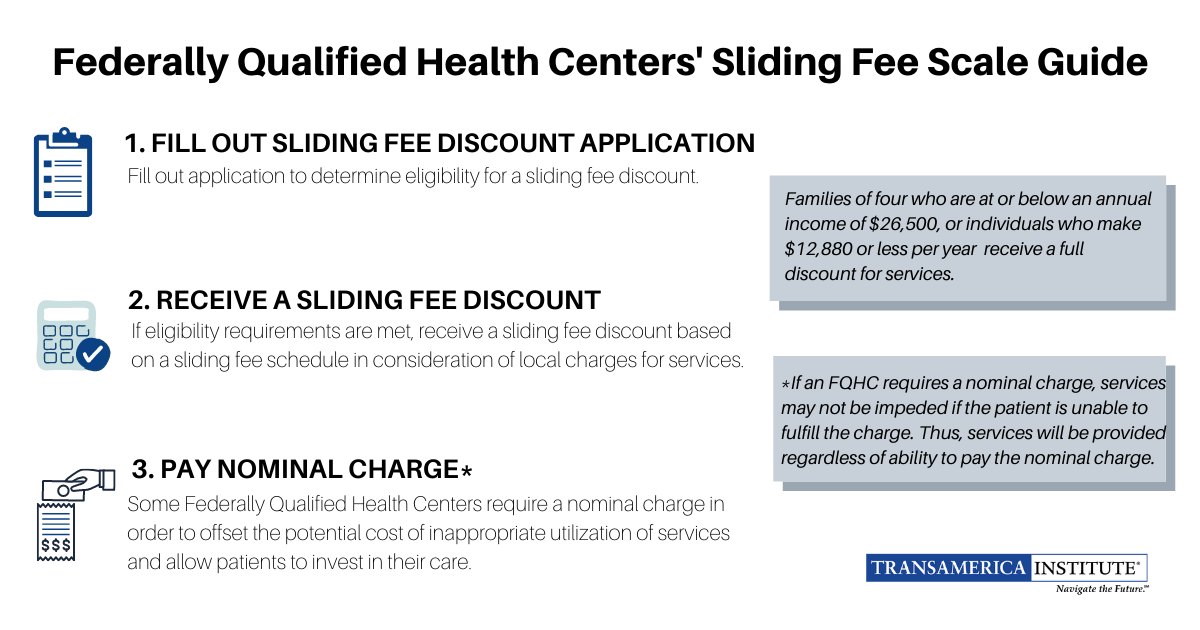Federally Qualified Health Centers
Federally Qualified Health Centers (FQHCs), commonly referred to as “health centers,” are safety-net providers that are governed by a patient board in often underserved communities. Funded by the Health Resources and Services Administration, FQHCs provide care to uninsured individuals, Medicare and/or Medicaid beneficiaries, people with private insurance, and many others across the nation. As part of their designation, FQHCs must provide comprehensive, high-quality, and culturally competent services–regardless of the patient’s ability to pay.
Who Can Visit a Federally Qualified Health Center?
Anyone who needs health care. Federally Qualified Health Centers (FQHCs) are obligated to care for patients regardless of their insurance status or ability to pay. FQHCs offer a wide range of services that are often located in low-income or underserved communities without sufficient access to primary care. This provides patients with access to holistic care in a timely and effective manner. FQHCs are also governed by patient-majority boards, so patient input about care is highly valued, influencing the decision-making process within health centers.
Services Offered by Federally Qualified Health Centers
Federally Qualified Health Centers (FQHCs) offer a wide variety of services including:
- Preventive health services
- Dental services
- Prenatal care
- Mental health and substance abuse services
- Transportation services necessary for adequate patient care
- Hospital and specialty care
- Medicare Part-B covered drugs prescribed by a certified FQHC practitioner
- Access to discounted pharmaceuticals through the 340B program
- Visiting nursing services to the homebound in areas where the Center for Medicare & Medicaid Services has determined there is a shortage of home health agencies
- Outpatient diabetes self-management training (DSMT) and medical nutrition therapy (MNT) for patients with diabetes or renal disease created by qualified practitioners of DSMT and MNT
- Vaccines for uninsured and underinsured children through the Vaccines for Children Program
- Chiropractic and Acupuncture services depending on a patient’s State Medicaid Program
Services vary by health center
FQHC services are provided by Physicians, Nurse Practitioners, Physician Assistants, Certified-Nurse Midwives, Clinical Psychologists, and Clinical Social Workers.
How Can You Locate Your Nearest Federally Qualified Health Center?
To locate the nearest Federally Qualified Health Center to you, visit the Health Resources and Services Administration website and enter your zip code.
How Can You Receive Care at a Federally Qualified Health Center?
How Much Does Health Care Cost at a Federally Qualified Health Center?
Federally Qualified Health Centers (FQHC) set their own charges for the services they provide and choose which services to include within their clinic. However, there must be a set list of charges that are uniform for all patients treated within that clinic.
When patients do not have health insurance coverage, health centers inform patients about their “sliding fee” program. FQHCs will work with patients to determine whether they are eligible for the sliding fee program based on family size and income level. If patients are deemed eligible, they will be charged based on a sliding fee scale meaning they only need to pay for a portion of the actual service costs received from the health center.
Types of Federally Qualified Health Centers include:
- Community Health Centers
- Migrant Health Centers
- Health Care for the Homeless
- Health Centers for Residents of Public Housing

Can FQHC Patients Receive Care Outside of a Federally Qualified Health Center Facility?
A patient can meet face-to-face with a physician, nurse practitioner, physician assistant, certified-nurse midwife, clinical psychologist, and clinical social worker in:
- The Federally Qualified Health Center (FQHC)
- The patient’s residence (including an assisted living facility)
- A Medicare-covered Part A Skilled Nursing Facility
- The scene of an accident
- The street or in mobile health facilities
FQHC visits may NOT take place in:
- An inpatient or outpatient hospital (including a Critical Access Hospital); or
- A facility that has specific requirements that preclude FQHC visits
Federally Qualified Health Center Basic Functions
- Deliver high quality, culturally competent, comprehensive primary care, as well as supportive services such as health education, translation, and transportation that promote access to health care.
- Provide dental, mental health, and substance abuse treatment. Federally Qualified Health Centers that do not provide these services are required to provide referrals and linkages for patients in need of care.
- Provide services regardless of patients’ ability to pay and charge for services on a sliding fee scale.
- Operate under the direction of patient-majority governing boards of autonomous community-based organizations. These include public and private nonprofit, tribal, and faith-based organizations.
- Develop systems of patient-centered and integrated care that respond to the unique needs of diverse, medically underserved areas and populations.
- Meet requirements regarding administrative, clinical, and financial operations.
Learn more about the Health Resources and Services Administration.
National Association of Community Health Centers
The National Association of Community Health Centers (NACHC) is a national association of Federally Qualified Health Centers (FQHCs) that aims to expand health care access through health centers. NACHC works with state and regional primary care associations to “promote efficient, high quality, comprehensive health care that is accessible, culturally and linguistically competent, community directed, and patient-centered for all.” NACHC conducts research, provides training, and develops partnerships in an attempt to bring adequate resources to underserved communities and foster a sense of healthy living across all 50 states. Visit the NACHC website to learn more.
254701 04/20